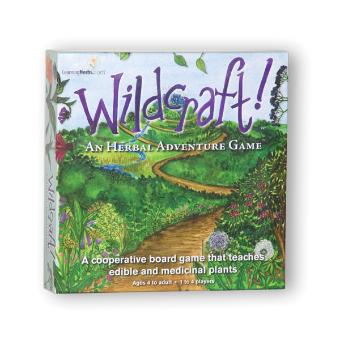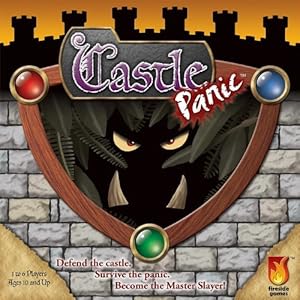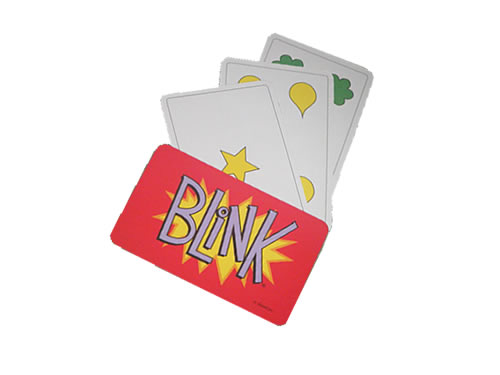 Curriculum & Instruction, Domestic Engineering, Game Theory
Curriculum & Instruction, Domestic Engineering, Game Theory  3 Comments
3 Comments Family Game Night: Friday Night Lists
I haven’t done a Friday Night List in a while, mostly because when it’s summer break, Friday night’s no different than any other night. But now that we’re wrapping up the first week back to school, it’s a blessed relief for all of us to flick off the alarm for tomorrow morning, so I thought I’d celebrate.
NEWS ALERT: We are a family of gamers. Shocking, I know. But even more than it being both work and passion for the Darling Husband and me, gaming has become instrumental in our parenting and education styles. They’re fantastic ways to sneak math and reading into their intellectual diet, and kids’ll often tackle concepts far more complex than grade level eagerly to master new levels of success in the game.
And, possibly more importantly, they’re perfect rehearsal spaces for a variety of social skills that all kids need work on, not just kids on the autism spectrum. Games teach turn-taking, graceful winning/losing, flexibility at unpredictable change, calculated risk-taking, cooperation, and enjoyment of others’ enjoyment. Honestly, how many adults do you know who have all those mastered?!
So, here’s a list of what we most frequently play at home these days. It’s very, very far from complete, and there are a number of embarrassing omissions, most notably Marvel Heroic Roleplaying (the DH’s current sandbox) and Once Upon A Time (one of my company’s best kid-friendly games, gorgeous 3rd Edition due in October ). But good games rotate through our regular play schedule, and we’ve got a few great new ones on deck to try out too. Here’s what’s in demand at the moment:
 1) GLOOM (Atlas Games): This one is evergreen for my kids. In Gloom by Keith Baker (art by Todd Remick), you’re in charge of a truly despicable family, and it’s your job to make them as miserable as possible before bumping them off in a horrible way. Meanwhile, you want to shower blessings and joy on your fellow players to prevent them from meeting the same fate. Up is down, and down is up, and kids positively cackle with delight when I moan and thrash and castigate them for something so repellent as a picnic in a park. Educational Skills: Positive and negative integers, and awesome new vocab like “consumption,” “dysentery,” and “chastised.” Social Skills: Turn-taking, cooperation/collaboration, winning/losing, strategy.
1) GLOOM (Atlas Games): This one is evergreen for my kids. In Gloom by Keith Baker (art by Todd Remick), you’re in charge of a truly despicable family, and it’s your job to make them as miserable as possible before bumping them off in a horrible way. Meanwhile, you want to shower blessings and joy on your fellow players to prevent them from meeting the same fate. Up is down, and down is up, and kids positively cackle with delight when I moan and thrash and castigate them for something so repellent as a picnic in a park. Educational Skills: Positive and negative integers, and awesome new vocab like “consumption,” “dysentery,” and “chastised.” Social Skills: Turn-taking, cooperation/collaboration, winning/losing, strategy.
 2) GET BIT (Mayday Games): A new favorite by developer Dave Chalker, the mechanics are very simple and attractive: You are one of a line of swimmers being chased by a shark. You have cards 1-7 which you play to determine each round’s race. The one left at the end of the line gets bit. The swimmer pieces have detachable body parts that give a satisfying LEGO-like snap when they come off, though the little pieces require kids to pay special attention during clean-up. Educational Skills: Probability, anatomy (?) Social Skills: Turn-taking, winning/losing, strategy.
2) GET BIT (Mayday Games): A new favorite by developer Dave Chalker, the mechanics are very simple and attractive: You are one of a line of swimmers being chased by a shark. You have cards 1-7 which you play to determine each round’s race. The one left at the end of the line gets bit. The swimmer pieces have detachable body parts that give a satisfying LEGO-like snap when they come off, though the little pieces require kids to pay special attention during clean-up. Educational Skills: Probability, anatomy (?) Social Skills: Turn-taking, winning/losing, strategy.
 3) WILDCRAFT! (LearningHerbs.com): I was attracted to this game by Kimberly and John Gallagher because it teaches kids to recognize common medicinal plants in nature and their uses, and I’m all about nature awareness for my kids. But the game mechanic is purely cooperative, and fosters truly collaborative game play toward the goal of getting everybody to and from the mulberry patch in the middle of forest in the time between sunup and sundown. Players draw Danger Cards for ailments like bee stings, fatigue, blisters, and sunburn, as well as plant cards; a system of symbols and detailed botanical drawings make the game playable even for pre-literate kids. And they collect Cooperation Cards that they can use to bring the last player up with them to get through the forest faster. Educational Skills: Plant recognition, herbal medicine. Social Skills: Turn-taking, cooperation/collaboration, strategy.
3) WILDCRAFT! (LearningHerbs.com): I was attracted to this game by Kimberly and John Gallagher because it teaches kids to recognize common medicinal plants in nature and their uses, and I’m all about nature awareness for my kids. But the game mechanic is purely cooperative, and fosters truly collaborative game play toward the goal of getting everybody to and from the mulberry patch in the middle of forest in the time between sunup and sundown. Players draw Danger Cards for ailments like bee stings, fatigue, blisters, and sunburn, as well as plant cards; a system of symbols and detailed botanical drawings make the game playable even for pre-literate kids. And they collect Cooperation Cards that they can use to bring the last player up with them to get through the forest faster. Educational Skills: Plant recognition, herbal medicine. Social Skills: Turn-taking, cooperation/collaboration, strategy.
 4) CASTLE PANIC (Fireside Games): In this game by Justin De Witt, players defend a castle in the center of a board shaped like a bullseye, which is accurate, because you’re under heavy siege by monsters of all kinds lurking in the forest around your keep. As the monsters advance on all sides, players cooperate to defend their walls. It’s largely hopeless, but it’s excellent fun to toss resource chips and skilled warriors back and forth and see how long you can hold out this time. Educational Skills: Um, trolls? Castle building? Social Skills: Cooperation/collaboration, strategy, graceful losing (not much winning).
4) CASTLE PANIC (Fireside Games): In this game by Justin De Witt, players defend a castle in the center of a board shaped like a bullseye, which is accurate, because you’re under heavy siege by monsters of all kinds lurking in the forest around your keep. As the monsters advance on all sides, players cooperate to defend their walls. It’s largely hopeless, but it’s excellent fun to toss resource chips and skilled warriors back and forth and see how long you can hold out this time. Educational Skills: Um, trolls? Castle building? Social Skills: Cooperation/collaboration, strategy, graceful losing (not much winning).
 5) LIGRETTO DICE (Playroom Entertainment): Otherwise known as “The Noisy Game” in our house, each player gets a cup full of six-sided dice of four different colors in this game by Inka and Markus Brand. You shake and dump them out, then race to put your dice on the board in ascending order in each color column. It’s a little bit Yahtzee, a little bit speed game. Adults might have to throw a few games ’til the kids get up to full speed, but once they climb the learning curve, it’s game on. Educational Skills: Numbers, colors, pattern recognition. Social Skills: Fast decision making, calculated risk-taking, winning/losing, strategy.
5) LIGRETTO DICE (Playroom Entertainment): Otherwise known as “The Noisy Game” in our house, each player gets a cup full of six-sided dice of four different colors in this game by Inka and Markus Brand. You shake and dump them out, then race to put your dice on the board in ascending order in each color column. It’s a little bit Yahtzee, a little bit speed game. Adults might have to throw a few games ’til the kids get up to full speed, but once they climb the learning curve, it’s game on. Educational Skills: Numbers, colors, pattern recognition. Social Skills: Fast decision making, calculated risk-taking, winning/losing, strategy.
 6) BLINK (Out of the Box Games): Another speed game (designed by Reinhard Staupe and artists John Kovalic, Ariel Laden, & Jurgen Martens) in which players work through a deck of cards by add to two central piles by matching the number, color, or shape of symbols on the cards. Like the previous, adults may have to handicap themselves a bit at first with younger kids, but it’s great for preschoolers and remains challenging long after they’re literate. It’s also a good, portable game to keep handy for unexpected, open-ended waits (along with LCR). Educational Skills: Colors, numbers, pattern recognition. Social Skills: Fast decision making, winning/losing.
6) BLINK (Out of the Box Games): Another speed game (designed by Reinhard Staupe and artists John Kovalic, Ariel Laden, & Jurgen Martens) in which players work through a deck of cards by add to two central piles by matching the number, color, or shape of symbols on the cards. Like the previous, adults may have to handicap themselves a bit at first with younger kids, but it’s great for preschoolers and remains challenging long after they’re literate. It’s also a good, portable game to keep handy for unexpected, open-ended waits (along with LCR). Educational Skills: Colors, numbers, pattern recognition. Social Skills: Fast decision making, winning/losing.
 7) MUNCHKIN (Steve Jackson Games): There are so many variants that took off from the original dungeon-raider theme, designed by Steve Jackson and illustrated by John Kovalic; our copies are Super Munchkin and Munchkin Axe Cop. You build a hero, outfit him with gadgets and armor befitting the theme, and go up against villains to win loot. Early in the game, you need more points than you probably have in your hero alone, so players need to negotiate with players to fight off high-value villains, but as players start getting their heroes close to their game-winning 10th Level, those team-ups start turning toward piling more villains on the frontrunner, forcing him to run away or lose valuable assets in battle. Educational Skills: Addition, greater than/less than comparison, reading. Social Skills: Turn-taking, strategy, cooperation/collaboration, calculated risk-taking, negotiation, winning/losing.
7) MUNCHKIN (Steve Jackson Games): There are so many variants that took off from the original dungeon-raider theme, designed by Steve Jackson and illustrated by John Kovalic; our copies are Super Munchkin and Munchkin Axe Cop. You build a hero, outfit him with gadgets and armor befitting the theme, and go up against villains to win loot. Early in the game, you need more points than you probably have in your hero alone, so players need to negotiate with players to fight off high-value villains, but as players start getting their heroes close to their game-winning 10th Level, those team-ups start turning toward piling more villains on the frontrunner, forcing him to run away or lose valuable assets in battle. Educational Skills: Addition, greater than/less than comparison, reading. Social Skills: Turn-taking, strategy, cooperation/collaboration, calculated risk-taking, negotiation, winning/losing.
Bookmarked for Holiday Shopping Ideas for my nephew and friends with kids!
We are so glad you liked Get Bit!, thanks for sharing! We are so happy to offer it to the world!
You’re welcome! In fact, when our family was recently featured on Good Morning America, they asked to tape us playing a game for the B-roll. Guess what we picked for a quick, fun game on camera?